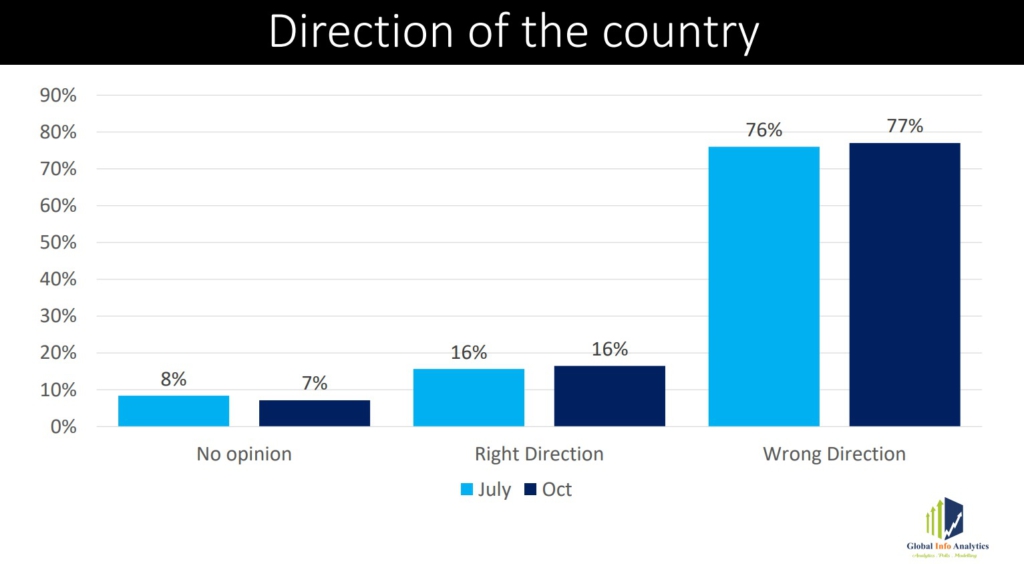77% of Ghanaians Say Country Is Headed In The Wrong Direction – GIA Survey
The Global Info Analytics (GIA) survey has revealed that about 77 per cent of Ghanaians think the country is headed in the wrong direction as of October 2022.
According to the survey, 16 per cent of Ghanaians believed the country was heading in the right direction.
Meanwhile, seven per cent of the persons polled had no opinion on the direction of the country.
GIA used a sample size of about 5,661.
The sample size was allocated to all the regions based on the total number of voters in each of the regions as per the EC 2020 register.
Global InfoAnalytics described itself as a nonpartisan company that provides data-driven research and insights on politics, policy and business strategy.
The country is currently amid a cost-of-living crisis, with the government seeking support from the International Monetary Fund (IMF) to keep the economy afloat.
There have been tonnes of workers’ agitation and demonstrations throughout the year which has instigated these kinds of opinions.
Numerous teacher union strikes have happened throughout the year.
On October 11, members of the Adum Traders Association in Kumasi embarked on a sit-down strike due to taxes by the Ghana Revenue Authority (GRA).
According to business owners, the recent introduction of the e-invoicing system has worsened their plight.
These and many other reasons compelled the Ghana Union of Traders Association (GUTA) to declare a widespread protest on Wednesday.
GUTA instructed its members and other businesses to close all shops in the country due to the depreciation of the cedi, inflation rate, lending rate, and cost of fuel in the country till Monday, October 24, 2022.
This strike was soon followed by members of the Importers and Exporters Association and the Food and Beverages Association of Ghana (FABAG).

Calls have been deepened for the resignation of Finance Minister Ken Ofori-Atta following developments in the UK, where Prime Minister Liz Truss announced her resignation less than two months in office.
Before that, the Prime Minister had fired Chancellor of the Exchequer Kwasi Kwarteng.
Several economic factors have taken a nosedive, with the government attributing it to the COVID-19 pandemic and the Russia-Ukraine war.
The cedi, for example, has depreciated by about 55% to the dollar since the beginning of the year.
As of today, October 21, the Ghana cedi continued its free fall, losing value twice within a day to sell at ¢14.50 to one US dollar.
This translated to 5.45% depreciation in a day and 17.5% in four days of the week.
It began the day at ¢13.75 to the American ‘greenback’ but declined in value further to ¢14.50, according to quotations by the forex bureaus.
The cedi also lost more ground to the pound and euro, despite the two currencies struggling to compete with the US dollar.
It is going for ¢16 to the pound and ¢13.3 to the euro.



